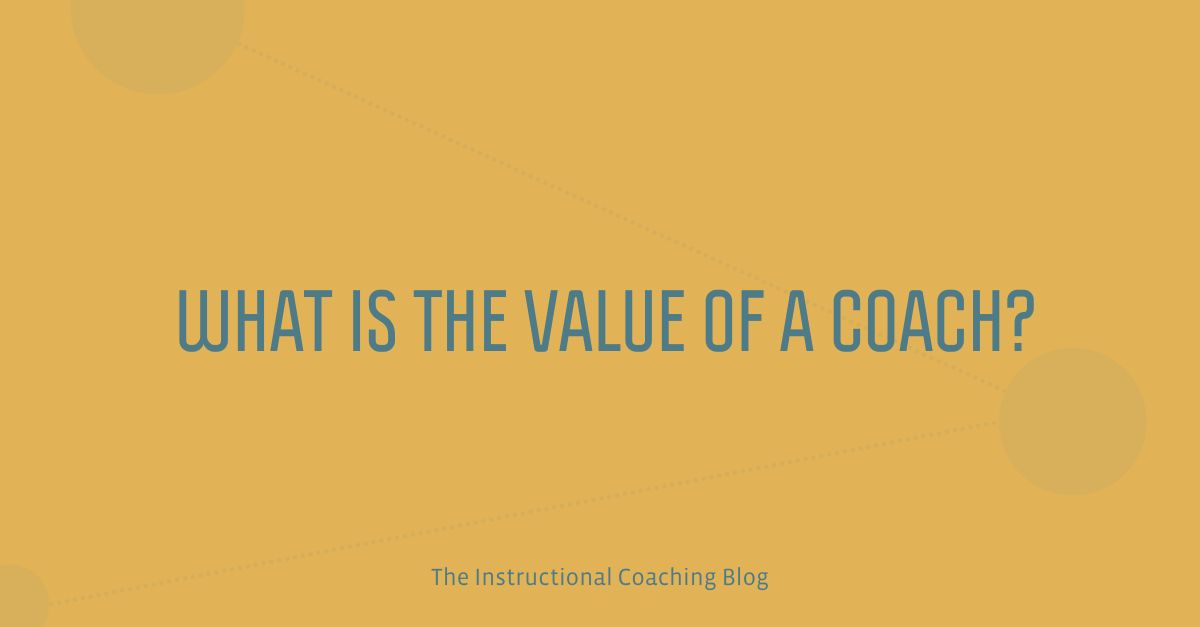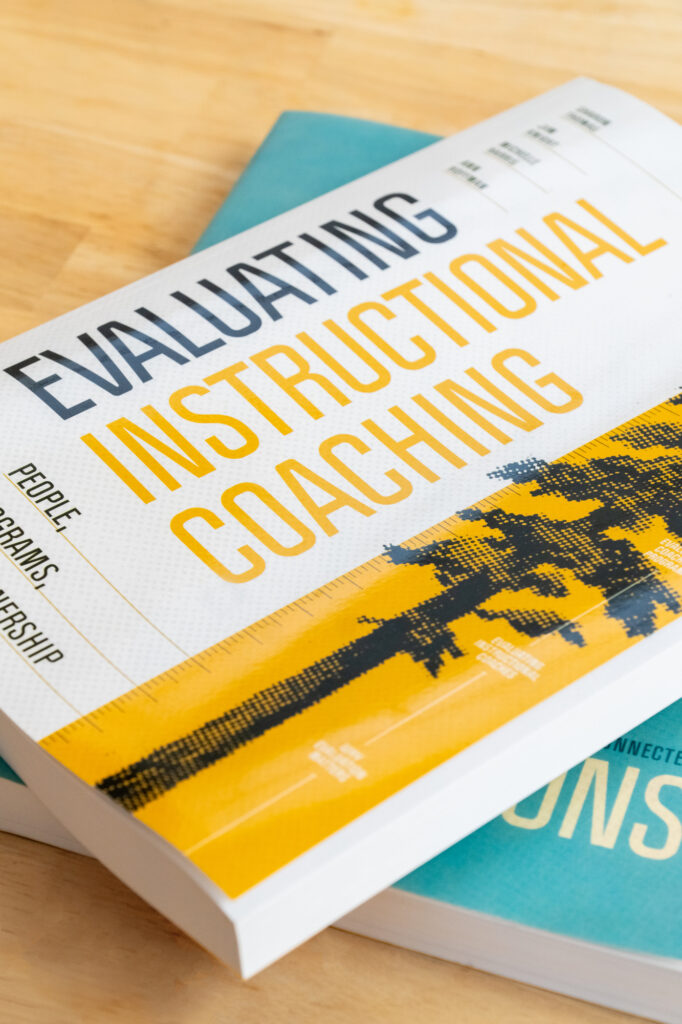Coaching done well may be the most effective intervention designed for human performance. Atul Gawande
A district administrator recently wrote to tell me that her district was facing “tough financial decisions” that are naturally causing lower morale. Everyone in her district feels under attack. And “the coaches are naturally questioning their value.”
All of us experience dark times when we wonder if we are making a difference, and coaches are no different. So I thought I would do my best to answer the coaches’ question. What is the value of a coach?
Coaches Support & Encourage Teachers. A coach is a trusted friend to educators, a colleague, a sounding board, and a witness to the good. These days can be difficult for educators, with increased expectations, decreased funding, more pressure and less encouragement. Coaches provide an incredibly important service by listening, empathizing, and encouraging their colleagues respectfully and nonjudgmentally. Coaches understand teachers because they are teachers themselves and most model practices as a part of coaching. For that reason, they can empathize with teachers in ways that are more difficult for others. Coaches get what it is like to have a great day and an awful day (sometimes in the same day). They know how rewarding and tough teaching can be. Many coaches have told me that an important part of what they do is to listen to their colleagues when it seems like their colleagues have no one else who is able or available to listen.
Coaches Encourage Meaningful Conversation. Every organization improves or declines based on the quality of the conversation within it. Michael Fullan, who has written more than 30 books about educational change, sums this up in his great book Leading in a Culture of Change:
We have found that the single factor common to every successful change initiative is that relationships improve. If relationships improve, things get better. If they remain the same or get worse, ground is lost.
Coaches study the art of communication—often video recording themselves and reflecting on how they ask questions, listen, encourage, and connect. They know how important each interaction can be, and they strive to engage in positive, supportive, honest conversations at all times. In this way, coaches move a school forward one conversation at a time.
A coach is a second set of hands. I don’t buy the line that teachers don’t want to learn. In my experience, when teachers are respected and treated as professionals, most of them are passionate about their own learning and growth. The trouble is that teachers are swamped with urgent tasks. Often teachers have too much to do to organize learning how to implement new practices. Coaches make learning much easier. Coaches do the work of organizing materials, explaining the practices, modeling, and providing support. Thanks to coaches, teachers around the world finally are able to do what they most want to do: find new ways to reach more students.
A coach is a second set of eyes. The task of teaching, as I experienced just a week ago, can be a complicated and crazy ride demanding every ounce of a teacher’s attention. When you are locked-in to ensuring that your 33 7th-graders are on-task and learning, it can be difficult to pause and deeply reflect on what is actually going on the classroom. A coach can gather data a teacher would like to gather if they weren’t so busy actually teaching. Also, coaches can gather data that might otherwise go undetected, recording, for example, how teachers use their time, students’ levels of engagement, teachers’ positivity ratio, and the kind of questions asked by teachers and students.
A coach leaves a legacy. We go into education because we want to make a difference, to leave our world a little better than we found it. George Lucas sums up what we all know to be true when he writes about the teachers who taught him:
Apart from my parents, my teachers have done the most to shape my life.
Few people can be more confident that they are making a difference than a coach. Every time a coach helps a teacher implement a new teaching or learning strategy, the coach is helping every other student that teacher will teach. One step forward for a teacher is one step forward for hundreds or thousands of children. Multiply that impact by all a coach does every day, and you get a clear picture of the value of instructional coaches.
Education is the way we move society forward. And coaches are one important way we move schools forward. For that reason, if you want to make our world a better place, there are few ways more powerful than being a coach.
What is the value of a coach? A coach is as valuable as a better future for our children. That seems extremely valuable to me.





























